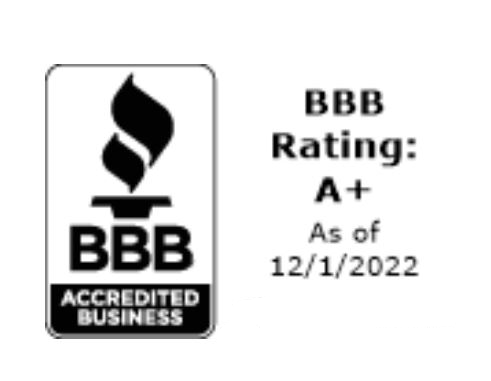| Items: | 0 |
| Subtotal: | $0.00 |

On Smart Phones
Tilt Horizontal

Categories

Shop By Brand

What are allergies? The term "allergies" refers to the body's usually unpleasant response when some particle or substance that it does not recognize comes in contact with tissue. This reaction is usually in response to a particle or substance coming in contact with the skin, ingested (eating/swallowing), or being inhaled and entering the airway. Essentially, the sequence of events in an allergic reaction are these: once an allergen (reaction causing substance) contacts skin or internal tissue, the body releases histamine, a nitrogen compound found in mast cells and white bloods cells, which are cells found in lots of tissue, especially hands, feet, mouth,internal tissue, and blood vessels. People with severe allergies tend to have more of these types of cells.
Histamine opens the pores of small blood vessels so more white blood cells can get in to deal with the 'intruder'. This results in an 'inflammation response' with localized a and/or generalized swelling. When someone with allergies has a reaction and it's localized (in a particular area), we see hives, puffy skin, eyes, etc. When the reaction is more generalized, this swelling is usually internal and external, which begins to reduce the size of the airway or begins to put pressure on blood vessels, reducing blood flow, as well. Allergies can cause cause reactions ranging from aggravating itching, sneezing, wheezing--or, when at a high enough level, life-threatening reactions such as anaphylaxis (a shock-like condition involving reduced blood pressure, reduced ability to breathe, even death). An Epi-Pen can be carried around for those that have severe allergies (delivers a small dose of epinephrine to halt/reverse anaphylactic situations--ask your doctor).
People and animals have allergies to many things--particles in the air such as pollen, dust, dust mites, workplace particles such as fiberglass, dander, etc, chemicals, even food allergies. Are allergies a 'permanent thing'? Not always. Some say that certain allergens (chemicals, metals, etc) build up in the body tissues and result in the an auto-immune response, where the body attacks its own cells because the foreign substance is lodged in the tissue. In those cases, natural cleansing methods have reduced or eliminated this auto-immune or allergic condition entirely (look up "Arise and Shine.com" on Google for more info).
What are allergies? They are no fun, that's what! There are, however, 2 main ways to effectively deal with most of them:
- Reduce or eliminate exposure to the particles / substances causing the reaction (allergens)
- Block the body's histamine triggering mechanism, using histamine blockers such as Benadryl, etc (there are natural antihistamines-such as Vitamin C, Quercetin, other antioxidants which reduce the activity of histamine (look up Season Freedom tablets, as well)
- Desensitization therapy--allergen injection or droplets placed on skin to get the body 'used to' a particular allergen--not always effective or suitable for some.
With respect to indoor air quality, the only real solution is #1--reduce / eliminate exposure to airborne allergens, which is fairly easy to do. Many people live with allergies and asthma, don't sleep well, and do not realize that their indoor air is often the problem. In most homes (and offices), unless there are quality HEPA air cleaners in place, there are literally millions of tiny particles (dust, dust mites, mold spores, pollen, smoke particles, pet dander, etc.), gases, chemicals, floating in the air causing irritation when they enter the eyes, nose, throat, skin, lungs, or other areas. In most cases, we can employ method 1 above--reduce or eliminate exposure to the allergens by using true HEPA air cleaners. There are countless studies and testimonials proving the ability of HEPA air cleaners to reduce allergies.
There are a LOT of air cleaners on the market, but only a few HEPA air cleaners are proven to effectively clean the air you breathe--we only sell those purifiers that remove 99.97% of particles (dust, dust mites, pet dander, pollen, smoke, bacteria, viruses, and mold) down to 0.3 microns or smaller, as well as chemicals and odors. Dust mites and dust mite particles (waste, dead body parts) have been shown to be responsible for over 60% of allergy / asthma cases, so definitely vacuum bedding, floors, carpets weekly and use a good HEPA air purifier.
Blueair units filter particles down to 0.1 microns in size. Aller Air units are best for those with chemical or odor concerns. With the right purifier, you may be able eliminate your sinus / respiratory allergies, reduce or eliminate the need for allergy medications, and possibly save hundreds of dollars per year!
Here are some quality allergy air cleaners that we highly recommend to address allergies in your home, office or other spaces:

Dusty, Dry, Pets, No chemical / Odors , No mold

Dusty, Dry, Pets,Chemical, Odors, No mold

Dust,Pets,Chem / Odors, Mold/Bacteria/Virus-add UV Option

WHOLE HOUSE-Particles, Chem/Odors, Mold,Bact,Virus (add UV)

Smoke, Particles, Chemicals
|
|
On Most Purchases
(some restrictions
Alaska & Hawaii Orders
Call for Shipping Quote
and to Place Order
by phone 9am-5pm CST
Monday - Friday with
24 Hour Voicemail
No Sales Tax
We Pay it For You!
*except for orders going to CA and AL*
ARE
SAVE
5% TO 20% OFF
YOUR ORDER
DISCOUNT
PAGES OR
is already at the lowest price online)
MESSAGE US HERE
WITH ANY QUESTIONS
A LOWER PRICE?
WE'LL MEET IT
OR BEAT IT*
*Can Choose Price Match or
Promotional Code, Not Both.
Occasionally Cannot Match
Volume Sellers such as Costco.
No Retro-Active Price Matching After 30 Days From Purchase*

Recently Viewed
 |
Email: support@airpurifiersandcleaners.com





